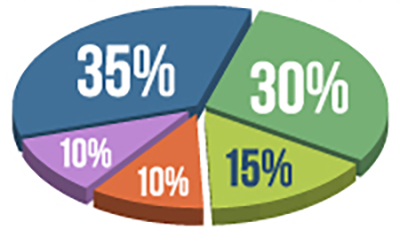35% Payment History
Late payments may lead to a lower score.
Late payments may lead to a lower score.

Less is more! Lowering debt can be the key to a better credit score.
Opening several accounts in a short time can lower your credit score.
Having experience with different types of credit (e.g., car loan and a credit card) can help your score.
A longer history of responsible credit use will likely lead to a higher score.